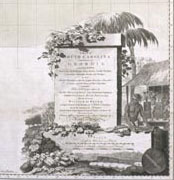The Board of Trade

The eight-member Lords Commissioners of Trade and Plantations—more commonly known as the Board of Trade and not to be confused with the Privy Council's standing committee for plantations—was established in 1696 by the crown for the purpose of "inspecting and improving our plantations or colonies." Throughout its history, the Board of Trade was primarily a clearinghouse for information about the colonies and an advisory body to the Privy Council and Parliament; it never possessed any true authority of its own. It could, for example, help prepare royal instructions for governors (the most regular effort of royal control over colonial politics), nominate candidates for colonial offices, recommend legislation, and hear disputes about and among the colonies. However, ultimate authority for all colonial matters, including the appointment and removal of governors and other officials, review of legislation, and development of policy, remained firmly in the hands of Parliament and the King-in-Council and, more particularly, the Secretary of State for the Southern Department.
The Board's primary impact on colonial affairs came from the personal influence and energy of its commissioners and permanent staff. The Board's influence waxed and waned throughout the colonial period, reaching its zenith under the direction of George Montagu Dunk, the Earl of Halifax, between 1748 and 1761. By the time of the Seven Years War, Halifax had managed to gain the power to nominate colonial governors and a seat at cabinet meetings, but the war derailed his plans for broadening the Board's authority. Nevertheless, the Board's principle task remained the acquisition and assessment of information on colonial affairs, which expanded considerably in the war's aftermath, especially regarding Native American affairs, colonial land disputes, and reports on the growing political tensions in America and the Caribbean. The creation of a new Secretary of State for the Colonies in 1768 (who also served as the Board's president) substantially diminished its role and it was finally abolished in 1782.






